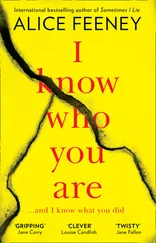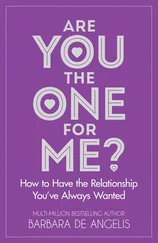“We needed envelopes,” said Jenny.
“We had to write some letters,” I said.
“To Yuri Andropov,” said Jenny.
“What do you know about Yuri Andropov?” said Mr. Jones.
“We wrote to ask him for peace,” she said.
“Well, that’s an idea,” he said. I couldn’t tell if he was laughing at us.
“We need to know his address,” said Jenny.
Mr. Jones was one of the adults who seemed to know everything. It was reassuring to be in the company of someone who always had answers. We addressed the envelopes under his supervision. “I’ll tell you what,” he said. “I’ll take these to the post office on my way to work Monday morning and make sure they have enough postage to get all the way to the Kremlin.” Mr. Jones exuded competence. And unlike everyone else I knew, he had actually been to the Soviet Union. He and some of his college friends traveled to Moscow in the 1960s for a basketball tournament. He still had the poster—with huge red letters in Cyrillic—hanging in his home office.
I’ve tried many times to remember what Mr. Jones did with our letters. Did he leave them on a corner of his desk? Did he put them in his briefcase? I only remember handing mine to him. Mr. Jones’s face was unremarkable and bland—the sort of face that blends into crowds—but his hands were strangely graceful, with the long fingers of a piano player, and he wore a gold signet ring. My mother made cracks about men in jewelry, but on Mr. Jones the ring seemed like proof of something solid in his character. I can still see my letter in his hand; it was authoritative and substantial.
We mailed the letters in the middle of November, and after that we were distracted by the holidays: Thanksgiving (for the second year in a row, the Joneses invited my mother and me to join them; I was grateful to sit at a candlelit table with a perfectly roasted turkey and homemade pies); Christmas (the Joneses went to Vermont to ski, and my mother and I stayed in Washington—she was still afraid of flying—and I feigned enthusiasm about the gift of vintage Encyclopaedia Britannica my father sent me); and New Year’s Eve, when the Joneses hosted their annual party (thirty or forty people, lots of champagne) and let Jenny and me stay up and watch the ball drop on TV. Time magazine’s 1982 Person of the Year was the computer.
And then it was 1983.
At school we were diagramming sentences and slaving over fractions. We joined a swim team and went to practice two afternoons a week. We spent snow days sledding at Battery Kemble Park—it was not uncommon to see Teddy Kennedy there with his Portuguese water dogs. We carved construction paper into valentines and were careful to hand out only the most innocent candy-heart messages. Giving someone a “Be Mine” could complicate things. We rehearsed for our class play. We were doing The Wizard of Oz, and Jenny was cast as Dorothy. I had only one line—I was a Munchkin, which required me to shuffle around the stage on my knees—so I helped Jenny memorize hers. I knew her part so well that our teacher, Mrs. Gibson, made me Jenny’s understudy. I had terrible stage fright, but I knew I’d never actually have to perform: nothing short of apocalypse could keep Jenny from the stage.
In February, U2 released their third studio album, War. On March 3, President Reagan delivered his famous Evil Empire speech. Three weeks later he announced the Strategic Defense Initiative. The Cold War was getting colder, and my mother was staying later and later at her office downtown. Her disarmament efforts had begun as a hobby, but by the time Reagan was inaugurated, she was working for WAND, Women’s Action for Nuclear Disarmament. She found friends among the fellow acolytes of Helen Caldicott and Randall Forsberg. Occasionally one of them would stop by to strategize over coffee. Knowing that my mother was not alone made it easier for me to leave her behind and escape to the serenity of Jenny’s house. So I was at the Joneses’ house on the afternoon at the end of March when the first reporter called.
“Jennifer, come down here!” her mother shouted up the stairs.
The urgency in her voice made me think Jenny was in trouble. I followed her down to the kitchen to find out what she’d done.
“Honey, you’re famous,” said Mrs. Jones.
“That was the Washington Post on the phone,” said Mr. Jones.
They had asked her parents to comment on Jenny’s letter to Andropov. It had just been published in Pravda, and the Western news media were picking up the story. The next day the headline of the Post read, AMBASSADOR FOR PEACE IS 10 YEARS OLD.
I told my mother that I had written a letter to Andropov, too.
“The Russians probably chose to publish her letter because her name sounds so quintessentially American,” my mom said.
“My name doesn’t sound American?”
“It sounds German,” she said. “Or Jewish.”
“But we’re not Jewish,” I said.
“I know that,” she said. “But Zuckerman could be a Jewish name.” My mother wasn’t a Zuckerman. She’d kept her maiden name, Whitney. “And the Russians are notoriously anti-Semitic. Besides,” she said, “it doesn’t matter which letter they published. The exciting part is that they published it at all. This is good for the cause. It puts the focus on ordinary people instead of politicians. Everyone’s sick of reading about summits with the Soviets.”
The American embassy in Moscow arranged to have copies of Pravda sent to Jenny via diplomatic pouch. Looking at her missive translated into Russian made me tired: every letter was capitalized, so the print was uninvitingly dense. “I’m sure they’ll publish yours next,” said Jenny.
But the next letter published was Yuri Andropov’s response. Because he wrote back, of course. That’s what made Jenny really famous. She showed me the letter when it arrived from Moscow—it was typed in English on official stationery. And it was long. “Propaganda!” said my mother when she read the text of it in the newspaper. “My God, look at this. He compares Jenny to a Mark Twain character. Jesus, they’re turning her into an American archetype.”
“The Soviet people,” wrote Mr. Andropov, “are for friendship and peace. The Soviet Union will never use nuclear weapons first. We would never start a war. We are occupied with exploring space and reading poetry and growing wheat. I invite you and your family to come to our peaceful country and see for yourself.”
The next morning four news vans jockeyed for position outside Jenny’s house. The cameras aimed at us as we set out for school. “Jennifer, did you think Mr. Andropov would write back?” a reporter shouted.
Jenny parried with a humble smile. “I didn’t know what to expect,” she said. “I just wanted him to know that regular kids like me are worried about nuclear war. I’m just a girl from Ohio who wants peace.”
“You didn’t tell them about my letter,” I said when we reached school.
“Sorry, I was nervous,” she said.
But she didn’t seem nervous. She was remarkably poised. Her sound bite made it onto all three networks that night. I’m just a girl from Ohio who wants peace. (“That’s savvy,” my mother said. “Playing the heartland card.”) Jenny was a natural. If my letter were published, I knew I’d freeze up in interviews. My mother was right. Jenny was good for the cause.
Letters began arriving for Jenny from all over the world. “Dear Jennifer,” they wrote. “You were brave to write to Andropov.” Sometimes I’d see the postman carry an overstuffed sack up the steps of her house, as if he were delivering mail to Santa Claus. The envelopes made unruly heaps on the Joneses’ front porch. Jenny invited me over to help open them. I sat on the porch swing and watched her. “Listen to this one,” she’d say, trying on different accents as she read them aloud. Then her mother whisked them away, filed them in labeled boxes. Mrs. Jones loved her label maker.
Читать дальше












